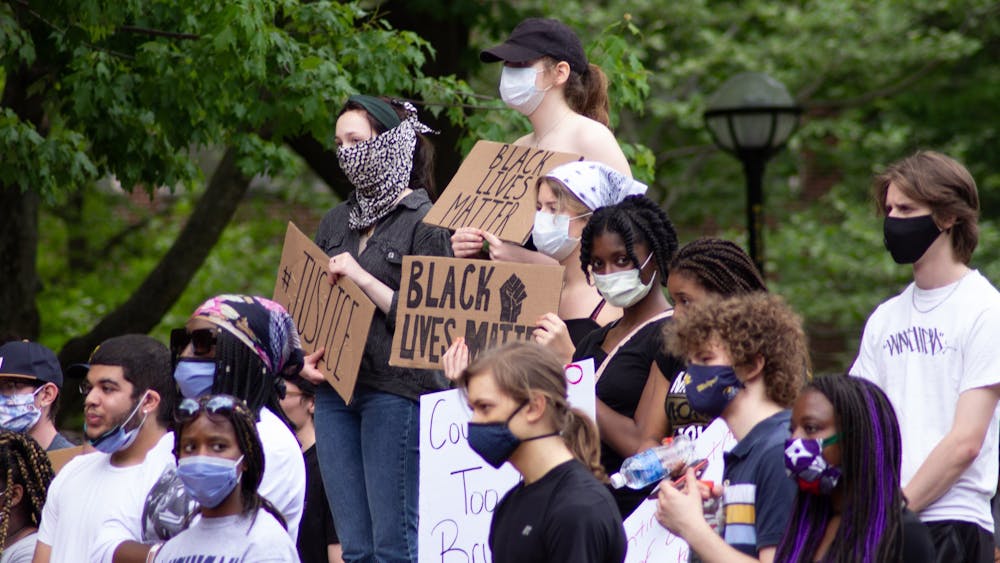Many companies love to appeal to consumers through performative activism, which is defined as “Activism done to increase one’s social capital rather than because of one’s devotion to a cause” (Moore).
There are many examples of this, particularly surrounding Black Lives Matter and Black History Month. An extremely infamous case would be that of the “Kendall Jenner Pepsi Ad." This advertisement case came out when BLM was first garnering major media and political attention. The advertisement starts with Jenner grabbing a Pepsi and pushing through a crowd of BLM protesters, smiling and nodding. Then, she walks across to the other side of the road, where police are lined up watching the protesters. She hands one officer the drink, and the crowd started cheering.
Obviously, this is offensive and nonsensical. Firstly, why would a rich, white model be painted as the face of Black Lives Matter? So often we see white women wanting to be the mouthpiece for Black issues, when they should be the ones listening and lifting up others instead.
Additionally, the idea that handing an officer a drink will move the issue of systemic racism and oppression in America is both baffling and also undermining to what BLM represents as a whole.
Apart from this, the ad portrays these protests as something fun, like a festival, when in reality, people were screaming, crying, being attacked, et cetera. It was sorrowful—a place of mourning for victims of police brutality—and a dangerous place for protesters, who were often assaulted—and in some cases, killed—by officers and violent anti-protesters.
Pepsi ended up removing the advertisement, and Jenner discussed it on her family’s reality TV show, “Keeping Up With The Kardashians." Jenner said she didn’t intend for it to be offensive and feels “really, really bad” (BBC).
There are so many examples of performative activism, and not all of them get backlash like this. Some successfully manage to garner the attention and support of consumers. However, we must ask ourselves, “is the corporation’s motivation truly to help people and support these movements, or is it simply to improve their image to the media and potential customers and business partners?”
To me, and many others, this ad seemed to be a clear marketing scheme made to profit off the suffering of the Black community. Not only was it incredibly disingenuous, but it was also mocking the situation.
Pepsi’s ad featuring Kendall Jenner is just one example of this issue. Corporations are constantly manipulating the public with their nonsensical promises of “wokeness.” These are simply made to appeal to consumers, so they feel good about the company and themselves for supporting such a seemingly progressive entity. We must remember that these companies do not care about anything besides profit.
If you want to feel good about yourself, you should be listening to what black people actually want for Black History Month.
“Non-black people can help the black community by acknowledging their privilege and standing beside us. They can also listen to black people about our experiences and what we find disrespectful. Wearing our hairstyles while we are discriminated for it in schools and in the workplace is not okay. Saying the n-word is definitely not okay. That is something that is for black people only. It is very annoying when white people try to be in black spaces and include themselves in what we do,“ says Eastern Michigan University junior Are’zeionna Andrews.
Non-black people can and should support the black community, not only this month, but all year round.
Through my interviews with Black students at EMU, there were some other recommendations given as well, such as buying from Black-owned businesses and supporting politicians who support people of color. Additionally, you can also donate to organizations that help the black community, such as Black Lives Matter and the NAACP.
During Black History Month, non-black people must keep in mind that this time is not meant for us to feel good about ourselves or appropriate black culture; Black History Month is about celebrating and uplifting the black community. It must be genuine and selfless. So next time you see a feel good ad using minorities as a selling point, ask yourself, “How does this help the community it’s using to market its products?”









